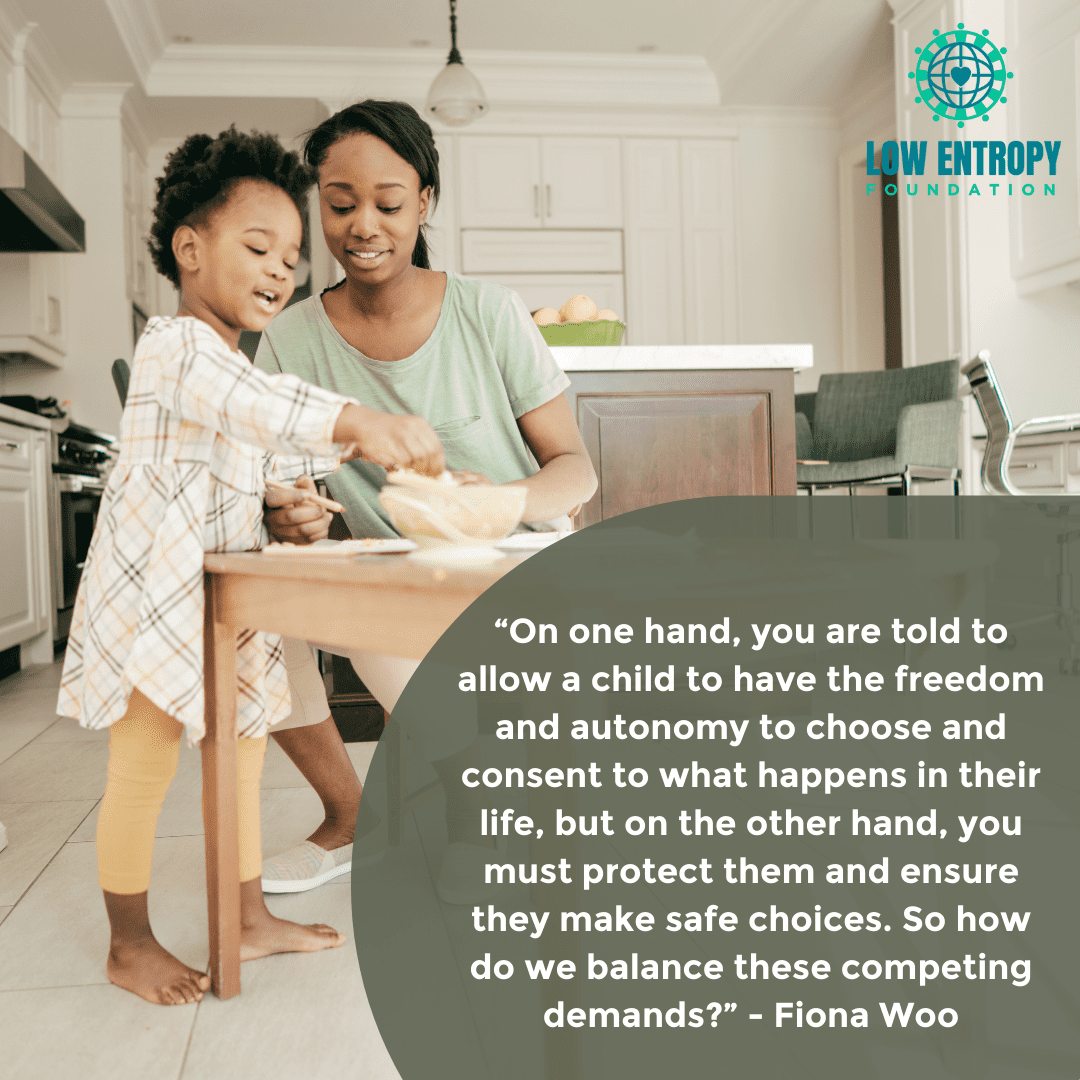Fiona Woo (she/her/hers), Low Entropy Volunteer Writer
Parenting is one of the most important tasks we can do in our adult lives, yet we receive no formal training on it before we get thrown into the deep end. Our parents’ influence on us as children lays the foundation for our entire perception and experience of life, yet most of us don’t take the time to understand or acknowledge how their parenting has impacted us. Recently, the trend I’ve been seeing in popular culture has been toward “gentle parenting.” This philosophy on parenting comes as a response to the emphasis on the importance of emotional acuity. This sometimes gets misconstrued as the directive to never say no to your child, or to give them everything they want. This would be a misguided approach and understanding of gentle parenting. The goal is to instill emotional intelligence, safety and security in our children’s lives. It is hard sometimes to decipher all of the seemingly conflicting messages that we receive about parenting. On one hand, you are told to allow a child to have the freedom and autonomy to choose and consent to what happens in their life, but on the other hand, you must protect them and ensure they make safe choices. So how do we balance these competing demands?
In order to answer this question, I think it is valuable to reflect on our own lives and experiences of childhood. My parents were very strict with me when I was young. Expectations were high and leniency was slim. As I got older however, they gave me a lot of freedom and entrusted me with taking responsibility for my choices. Nowadays, I don’t think my parents’ parenting styles would be widely accepted in popular culture because they said no to me a lot and had a strong desire for me to be a ”good child” and achieve excellence. Now it is not seen in such a positive regard to project your own desires as a parent onto your child. Now, you are expected to create a blank slate on which the child can become whomever they would like to be. Having worked with a lot of children and studied the topic of parenting, I completely understand where this desire comes from and the merit behind it. However, I also see the downfalls and impact that a lack of boundaries and structure can have on developing children.
In this new, hyper-aware era of parenting, I believe it is important we find the delicate balance between the two extremes in an attempt to create a healthier and more successful future generation. In this version of parenting, I imagine a space for both boundaries and freedom, a space for children to safely and securely explore themselves and the world around them at age-appropriate stages. A structure that will allow parents to develop their children’s emotional and mental intelligence so that the child has a solid foundation from which they can strive to reach their potential. This will not mean saying yes to everything and letting the child be free to do as they please, but instead, creating firm proverbial safety rails from which the child’s imagination can develop and soar. This will also not mean yelling at your children and forcing them against their will, but guiding and redirecting when necessary to help them understand that you are there to protect them and you will do that job whether it is what they want or not. Building resilience, kindness, self-esteem and security will allow our children to grow into strong adults who are capable of doing great things in the world and being caring members of society.
Ultimately, I believe we teach children so much more with who we are than what we say. I think prioritizing our personal growth and healing will guide us in our parenting journey far more than trying to figure out the perfect parenting tip or strategy. The thing our children need more than anything else is love. Unconditional, unadulterated love. If we can give that to them, even with some bumps and bruises along the way, they will have everything they need and more.
—
A longtime lover of all things personal development and well-being, Fiona is a psychology major and certified life coach. With goals to reduce anxiety and provide clarity and direction for struggling new grads, Fiona seeks to open raw and vulnerable conversations in her writing. Other than writing and psychology, Fiona loves the ocean and you will never see a bigger smile on her face than when she’s on or by the water.







